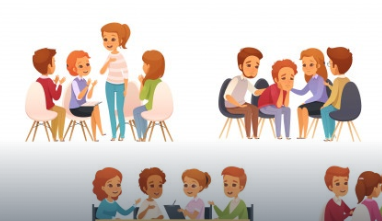How Not to Talk to Your Children
By Po Bronson
Thomas is a fifth grader at a highly competitive primary school. Since he could walk, he has heard constantly that he’s smart, not just from his parents but from any adult who has come in contact with this genius. When he applied to a well-known kindergarten, his intelligence was statistically confirmed. Thomas didn’t only score in the top one percent, but he also scored in the top one percent of the top one percent. However, as Thomas progressed through school, his father noticed just the opposite. ‘Thomas didn’t want to try things he wouldn’t be successful at,’ his father says. ‘For instance, in the early grades Thomas wasn’t very good at spelling, so he was reluctant to spell out loud.’ Thomas is not alone. For a few decades, it’s been noted that a large percentage of all gifted students severely underestimate their own abilities.
According to a survey conducted by Columbia University, 85 per cent of American parents think it’s important to tell their kids that they’re smart. However, a new study of the New York public-school system strongly suggests it might be the other way around. Giving kids the label of ‘smart’ does not prevent them from underperforming. It might actually be causing it. For the past ten years, psychologist Carol Dweck and her team at Columbia studied the effect of praise on students in a dozen schools in New York.
Dweck sent her research assistants into fifth-grade classrooms in New York. The researchers would take a single child out of the classroom for a non-verbal IQ test consisting of a series of puzzles that were easy enough and all the children would do fairly well. Once the child finished the test, the researchers told each student his score, then gave him a single line of praise. Randomly divided into groups, some were praised for their intelligence. They were told, ‘You must be smart at this.’ Other students were praised for their effort: ‘You must have worked really hard.’
Then the students were given a choice of test for the second round. One choice was a test that would be more difficult than the first, but the researchers told the children that they’d learn a lot from attempting the puzzles. The other choice, Dweck’s team explained, was an easy test, just like the first. Of those praised for their effort, 90 percent chose the harder set of puzzles, and of those praised for their intelligence, a majority chose the easy test. The ‘smart’ kids found excuses not to take it.
(Adapted from NewYorkMagazine Website.)

